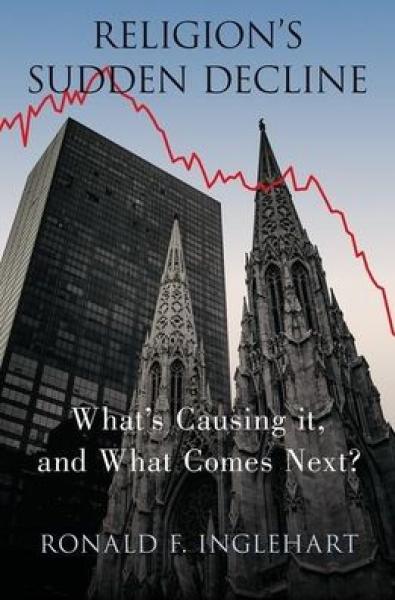Description
The world is becoming less religious. Since 2007, there has been a pervasive decline in religious belief and most of the world's people now say that God is less important in their lives than they said He was in the quarter century before 2007. The American public showed the most dramatic shift of all. The United States, which for many years stood as a highly religious outlier among the world's high-income countries, now ranks as the 12th least religious country for which data are available. Many factors contributed to this dramatic worldwide shift, but as Inglehart shows, certain ones stand out. For centuries, virtually all major religions encouraged women to stay home and produce as many children as possible; and they sternly discouraged divorce, abortion, homosexuality, contraception, and any other form of sexual behavior not linked with reproduction. These norms were necessary for societies to survive when facing high infant mortality and low life expectancy: societies that didn't instill them tended to die out. Recent technological advances have greatly increased life expectancy and cut infant mortality to a tiny fraction of its historic levels, making these norms no longer necessary for societal survival. These norms require repressing strong natural urges, but, since they present traditional norms as absolute values, most religions strongly resist change. The resulting tension, together with the fact that rising existential security has made people less dependent on religion, opened the way for an exodus from religion. Utilizing a massive global data base, Inglehart analyzes the conditions under which religiosity collapses, and explores its implications for the future.
"Secularization has accelerated. From 1981 to 2007, most countries became more religious, but from 2007 to 2020, the overwhelming majority became less religious. For centuries, all major religions encouraged norms that limit women to producing as many children as possible and discourage any sexual behavior not linked with reproduction. These norms were needed when facing high infant mortality and low life expectancy but require suppressing strong drives, and are rapidly eroding. These norms are so strongly linked with religion that abandoning them undermines religiosity. Religion became pervasive because it was conducive to survival, encouraged sharing when there was no social security system, and it is conducive to mental health and coping with insecure conditions. People need coherent belief systems, but religion is declining. What comes next? The Nordic countries have consistently been at the cutting edge of cultural change. Protestantism left an enduring imprint, but the 20th Century welfare added universal health coverage, high levels of state support for education, welfare spending, child care, pensions and an ethos of social solidarity. These countries are also characterized by rapidly declining religiosity. Does this portend corruption and nihilism? Apparently not. These countries lead the world on numerous indicators of a well-functioning society, including economic equality, gender equality, low homicide rates, subjective well-being, environmental protection and democracy. They have become less religious, but their people have high levels of interpersonal trust, tolerance, honesty, social solidarity and commitment to democratic norms. The decline of religiosity has far-reaching implications. This book explores what comes next"--
Inglehart has rewritten the story of how modernization affects religion. You might not agree with his theory, but you need to read this book: it will be cited in debates over religious change for years to come. -- David Voas, University College London
Product Details
- Oxford University Press, Brand
- Jan 2, 2021 Pub Date:
- 0197547052 ISBN-10:
- 9780197547052 ISBN-13:
- 208 Pages
- 9.1 in * 6.1 in * 0.6 in Dimensions:
- 1 lb Weight:




